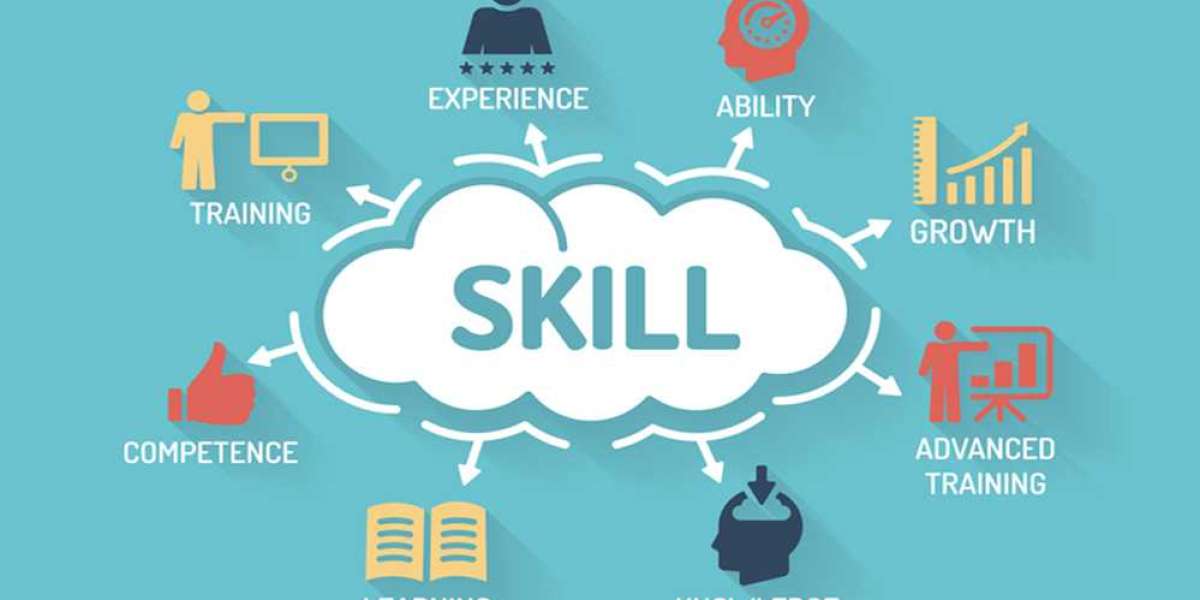In today’s fast-paced and digitally-driven world, online education and skill development are reshaping the educational landscape in the United States. With technology as a cornerstone, this transformation is not just a response to global challenges but a proactive shift toward accessibility, inclusivity, and lifelong learning. From formal degree programs to niche skill-building courses, online education has opened new doors for millions of Americans striving to achieve personal and professional growth.
The Rise of Online Education
Online education in the U.S. has evolved from being a supplementary tool to becoming a mainstream option for students, professionals, and lifelong learners. While its roots date back to correspondence courses of the 19th century, the real boom occurred with the advent of the internet in the 1990s. Institutions such as the University of Phoenix pioneered online degree programs, and by the 2010s, platforms like Coursera, edX, and Udemy made education accessible to anyone with an internet connection.
The COVID-19 pandemic acted as a catalyst, forcing traditional educational institutions to pivot online. What began as a contingency measure highlighted the strengths of online education: flexibility, scalability, and the ability to democratize access to learning. Today, nearly every major university in the U.S. offers online courses, while organizations and independent instructors leverage online platforms to deliver specialized training.
Benefits of Online Education
Flexibility:
One of the most significant advantages of online education is flexibility. Students and professionals can learn at their own pace, balancing studies with work, family, or other commitments. This flexibility is particularly beneficial for working adults who wish to upgrade their skills without taking a career break.Accessibility:
Online education breaks geographical barriers, allowing students from remote or underserved areas to access world-class courses. This inclusivity extends to individuals with disabilities who may find traditional classrooms challenging.Cost-Effectiveness:
Traditional education often involves high tuition fees, housing costs, and commuting expenses. Online courses, on the other hand, are typically more affordable and allow learners to save on additional costs. Many platforms also offer free courses, making education more accessible to economically disadvantaged groups.Diverse Learning Options:
Online education offers an array of courses, from technical skills like coding and data analysis to creative fields such as graphic design and music production. This diversity caters to varied interests and career goals.Personalized Learning Experiences:
With adaptive technologies, online education platforms can tailor content to suit individual learning styles and progress levels. This personalization enhances understanding and retention.
The Role of Skill Development in Today’s Economy
As the U.S. economy shifts toward knowledge-based industries, the demand for specialized skills has surged. Employers increasingly value skills over degrees, emphasizing competency in areas such as digital marketing, data science, artificial intelligence, and cybersecurity.
Online education has become the go-to avenue for acquiring these skills. Unlike traditional degree programs that can take years to complete, online skill development courses are designed to be concise, practical, and directly applicable. Many of these courses are developed in partnership with industry leaders, ensuring that the curriculum is relevant and up-to-date.
Popular Platforms for Online Learning
Several platforms have gained prominence in the U.S. for offering high-quality online education and skill development opportunities:
Coursera:
Partnering with top universities and companies, Coursera offers a wide range of courses, professional certificates, and degree programs.edX:
Founded by Harvard and MIT, edX provides access to courses from leading institutions worldwide. Its focus on micro-credentials and stackable learning paths is particularly appealing to professionals.Udemy:
A marketplace for individual instructors, Udemy offers affordable courses on virtually any topic, making it a popular choice for hobbyists and professionals alike.LinkedIn Learning:
Integrated with the professional networking platform, LinkedIn Learning provides courses tailored to career advancement and skill-building.Khan Academy:
Known for its free resources, Khan Academy is a valuable tool for foundational learning and skill enhancement.Skillshare:
Focused on creative skills, Skillshare is a hub for aspiring designers, artists, and entrepreneurs.
Challenges of Online Education
While online education has numerous benefits, it also faces certain challenges:
Digital Divide:
Despite its accessibility, not all Americans have reliable internet access or devices for online learning. Bridging this digital divide is critical to ensure equitable opportunities.Lack of Interaction:
The absence of face-to-face interaction can lead to feelings of isolation and hinder collaborative learning experiences.Self-Motivation Required:
Online learning demands a high degree of self-discipline and time management, which can be challenging for some learners.Quality Assurance:
With the proliferation of online courses, maintaining quality and credibility can be an issue. Accreditation and user reviews play a vital role in addressing this concern.Recognition by Employers:
While perceptions are changing, some employers still prioritize traditional degrees over online certifications. Awareness and acceptance of online credentials need to improve.
Future Trends in Online Education and Skill Development
The future of online education in the U.S. looks promising, with several trends shaping its trajectory:
Artificial Intelligence (AI) Integration:
AI-driven tools will enhance personalized learning experiences, provide real-time feedback, and automate administrative tasks.Gamification:
Incorporating game elements into courses will make learning more engaging and interactive.Hybrid Learning Models:
Combining online and in-person learning, hybrid models will offer the best of both worlds, catering to diverse learner needs.Focus on Micro-Credentials:
Short, targeted certifications in specific skills will gain prominence as professionals seek to stay competitive in a rapidly changing job market.Emphasis on Soft Skills:
Beyond technical skills, courses on communication, teamwork, and leadership will play a vital role in holistic development.Global Collaboration:
Online education will increasingly foster cross-cultural learning and collaboration, preparing learners for a globalized workforce.
Conclusion
Online education and skill development have revolutionized learning in the United States, providing unprecedented opportunities for personal and professional growth. As the demand for specialized skills continues to rise, online platforms are well-positioned to bridge the gap between education and employment.
However, for this potential to be fully realized, it is essential to address challenges such as the digital divide and quality assurance. Policymakers, educators, and industry leaders must work collaboratively to create an ecosystem that supports lifelong learning and equips Americans to thrive in a dynamic economy.
The shift to online education is more than a trend; it is a testament to the power of technology to transform lives. Whether you are a recent graduate, a mid-career professional, or a retiree exploring new interests, the digital realm of learning offers something for everyone—proving that education truly knows no bounds














